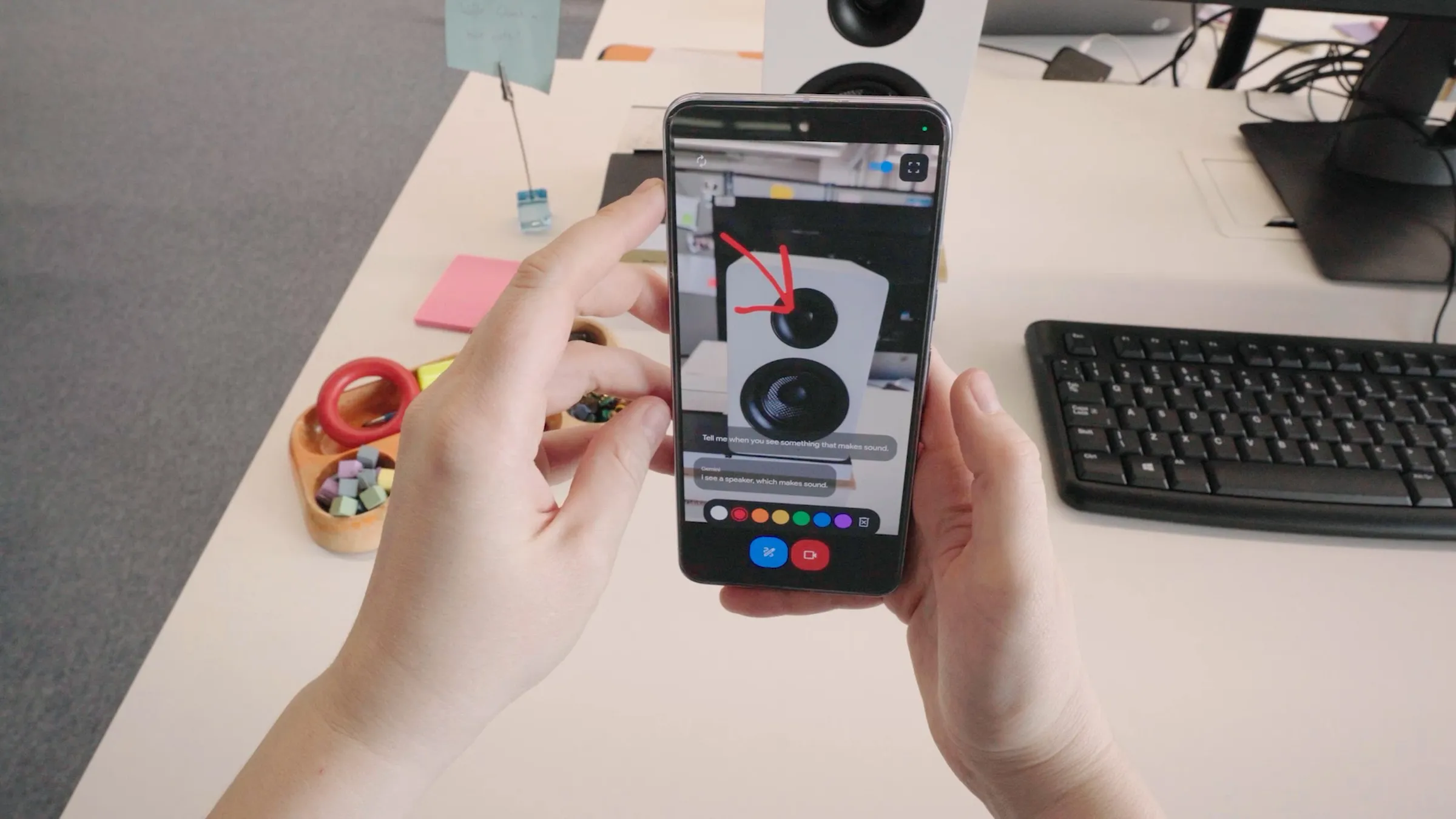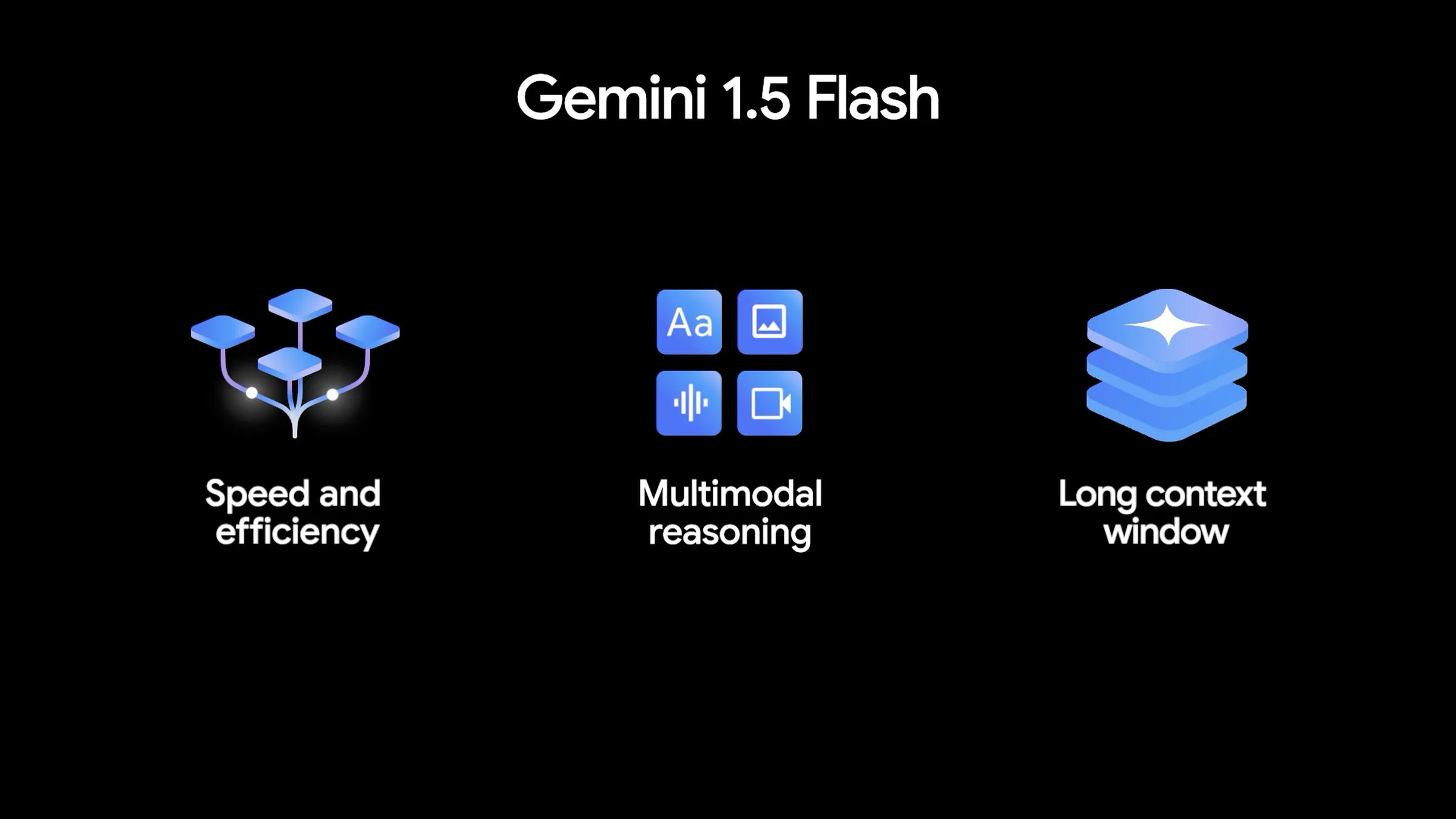AI & Tech News
Google Project Astra: The Future of AI Assistants
Learn about Google's Project Astra's advanced features and integrations
May 19, 2024
May 19, 2024
May 19, 2024


Imagine needing a digital assistant that truly understands you, processes multiple types of input, and provides real-time solutions. Traditional AI assistants like Alexa and Siri have struggled to meet these expectations, often falling short in understanding context and providing seamless assistance. This is where Google's Project Astra comes in, promising to address these issues and revolutionize how we interact with AI.
The Challenge with Current AI Assistants
Current AI assistants, despite their advancements, still have significant limitations. They often fail to understand the full context of user queries, struggle with processing different types of input simultaneously, and provide delayed or irrelevant responses. These shortcomings have left users frustrated and skeptical about relying on AI for daily tasks.
The Promise of Project Astra
A Multimodal Solution
Project Astra, developed by Google DeepMind, is designed to overcome these limitations. Unlike its predecessors, Project Astra can process and understand information from text, video, images, and speech simultaneously. This multimodal capability allows users to interact with the assistant in the most natural and convenient way possible.
Real-Time Interactions
One of the most significant advancements of Project Astra is its real-time processing ability. Traditional AI assistants often lag in response time, but Project Astra delivers immediate feedback, enhancing user experience and productivity. Imagine asking your assistant to find your glasses or review a piece of code and receiving a precise response instantly.
Visual AI Processing
Understanding visual context is another critical feature of Project Astra. This AI can identify objects, navigate spaces, and interpret visual information, making it incredibly useful for a variety of tasks. Whether you're looking for a specific tool in your workspace or need help with a visual project, Project Astra can assist efficiently.
The Gemini Models Integration

Project Astra's capabilities are further enhanced by its foundation on Gemini models. These models, including the Gemini 1.5 Flash and Nano, are optimized for speed and accuracy. They ensure that Project Astra can handle complex queries and tasks effectively.
Speed and Efficiency
The integration of Gemini models means that Project Astra can perform tasks faster and more efficiently. The Gemini 1.5 Flash model, for instance, is designed to handle common tasks like summarization and captioning with greater speed. This improvement in speed is crucial for real-time interactions, ensuring users receive timely and accurate assistance.
Comprehensive AI Assistant
Combining these models with Project Astra’s multimodal capabilities creates a comprehensive AI assistant. From answering simple inquiries to solving complex problems, Project Astra is equipped to handle a wide range of functions, making it an invaluable tool for everyday use.
Overcoming the AI Assistant Hurdles
Understanding Context
A significant breakthrough in Project Astra is its ability to understand and respond to context. Unlike other AI assistants that might provide generic answers, Project Astra takes into account the user's situation and provides relevant and accurate information.
Daily Life Integration
The vision for Google's new AI is to integrate seamlessly into daily life. Whether it's finding misplaced items, managing schedules, or answering detailed questions, Project Astra aims to be the go-to assistant for all tasks. This level of integration ensures that users can rely on the AI for consistent and effective support.
The Future with Project Astra
Project Astra is not just an improvement over existing AI assistants; it represents a fundamental shift in AI technology. By addressing the critical issues of multimodal input, real-time processing, and context understanding, Project Astra is set to redefine the capabilities of AI assistants.
Prototype and Beyond
The prototype showcased at the Google I/O conference has already demonstrated immense potential. As Project Astra continues to develop, we can expect even more sophisticated and capable AI assistants to emerge, further enhancing our daily lives.
Frequently Asked Questions
What makes Project Astra different from other AI assistants?
Project Astra stands out due to its multimodal capabilities, real-time processing, and advanced context understanding, providing more accurate and relevant assistance compared to traditional AI assistants.
How does Project Astra process different types of input?
Project Astra is designed to handle text, video, images, and speech simultaneously, allowing for a more natural and intuitive user interaction.
What are the key benefits of using Project Astra?
Key benefits include immediate responses, accurate context understanding, and the ability to assist with a wide range of tasks, making it an invaluable tool for everyday use.
Imagine needing a digital assistant that truly understands you, processes multiple types of input, and provides real-time solutions. Traditional AI assistants like Alexa and Siri have struggled to meet these expectations, often falling short in understanding context and providing seamless assistance. This is where Google's Project Astra comes in, promising to address these issues and revolutionize how we interact with AI.
The Challenge with Current AI Assistants
Current AI assistants, despite their advancements, still have significant limitations. They often fail to understand the full context of user queries, struggle with processing different types of input simultaneously, and provide delayed or irrelevant responses. These shortcomings have left users frustrated and skeptical about relying on AI for daily tasks.
The Promise of Project Astra
A Multimodal Solution
Project Astra, developed by Google DeepMind, is designed to overcome these limitations. Unlike its predecessors, Project Astra can process and understand information from text, video, images, and speech simultaneously. This multimodal capability allows users to interact with the assistant in the most natural and convenient way possible.
Real-Time Interactions
One of the most significant advancements of Project Astra is its real-time processing ability. Traditional AI assistants often lag in response time, but Project Astra delivers immediate feedback, enhancing user experience and productivity. Imagine asking your assistant to find your glasses or review a piece of code and receiving a precise response instantly.
Visual AI Processing
Understanding visual context is another critical feature of Project Astra. This AI can identify objects, navigate spaces, and interpret visual information, making it incredibly useful for a variety of tasks. Whether you're looking for a specific tool in your workspace or need help with a visual project, Project Astra can assist efficiently.
The Gemini Models Integration

Project Astra's capabilities are further enhanced by its foundation on Gemini models. These models, including the Gemini 1.5 Flash and Nano, are optimized for speed and accuracy. They ensure that Project Astra can handle complex queries and tasks effectively.
Speed and Efficiency
The integration of Gemini models means that Project Astra can perform tasks faster and more efficiently. The Gemini 1.5 Flash model, for instance, is designed to handle common tasks like summarization and captioning with greater speed. This improvement in speed is crucial for real-time interactions, ensuring users receive timely and accurate assistance.
Comprehensive AI Assistant
Combining these models with Project Astra’s multimodal capabilities creates a comprehensive AI assistant. From answering simple inquiries to solving complex problems, Project Astra is equipped to handle a wide range of functions, making it an invaluable tool for everyday use.
Overcoming the AI Assistant Hurdles
Understanding Context
A significant breakthrough in Project Astra is its ability to understand and respond to context. Unlike other AI assistants that might provide generic answers, Project Astra takes into account the user's situation and provides relevant and accurate information.
Daily Life Integration
The vision for Google's new AI is to integrate seamlessly into daily life. Whether it's finding misplaced items, managing schedules, or answering detailed questions, Project Astra aims to be the go-to assistant for all tasks. This level of integration ensures that users can rely on the AI for consistent and effective support.
The Future with Project Astra
Project Astra is not just an improvement over existing AI assistants; it represents a fundamental shift in AI technology. By addressing the critical issues of multimodal input, real-time processing, and context understanding, Project Astra is set to redefine the capabilities of AI assistants.
Prototype and Beyond
The prototype showcased at the Google I/O conference has already demonstrated immense potential. As Project Astra continues to develop, we can expect even more sophisticated and capable AI assistants to emerge, further enhancing our daily lives.
Frequently Asked Questions
What makes Project Astra different from other AI assistants?
Project Astra stands out due to its multimodal capabilities, real-time processing, and advanced context understanding, providing more accurate and relevant assistance compared to traditional AI assistants.
How does Project Astra process different types of input?
Project Astra is designed to handle text, video, images, and speech simultaneously, allowing for a more natural and intuitive user interaction.
What are the key benefits of using Project Astra?
Key benefits include immediate responses, accurate context understanding, and the ability to assist with a wide range of tasks, making it an invaluable tool for everyday use.

